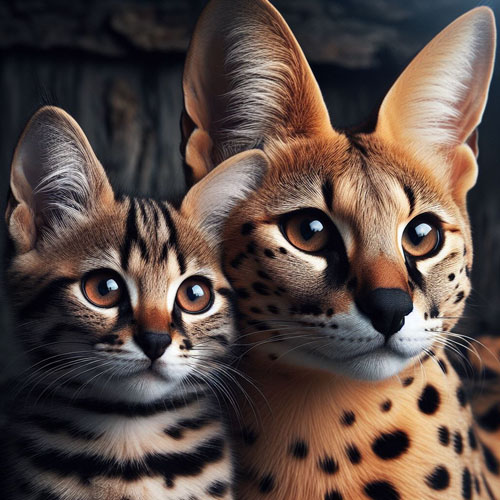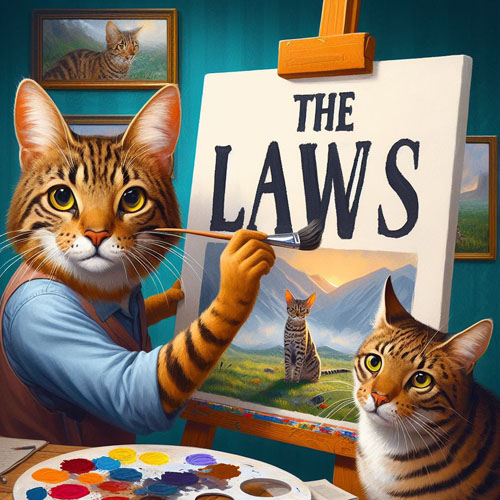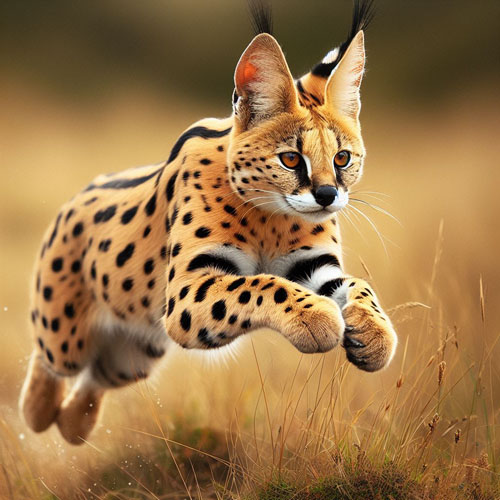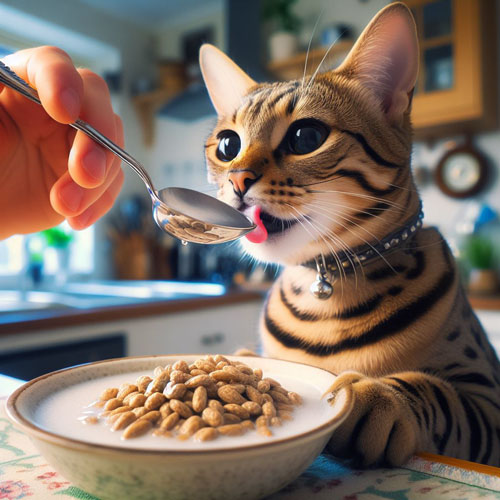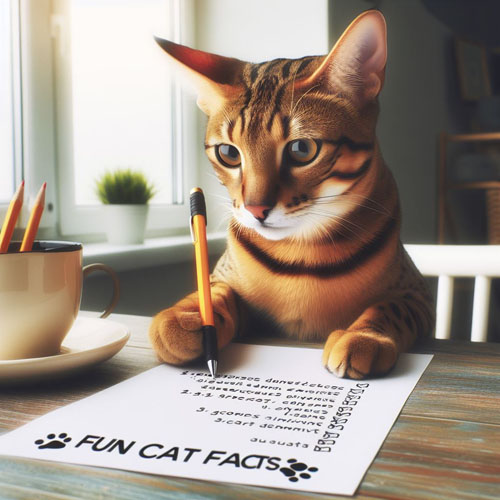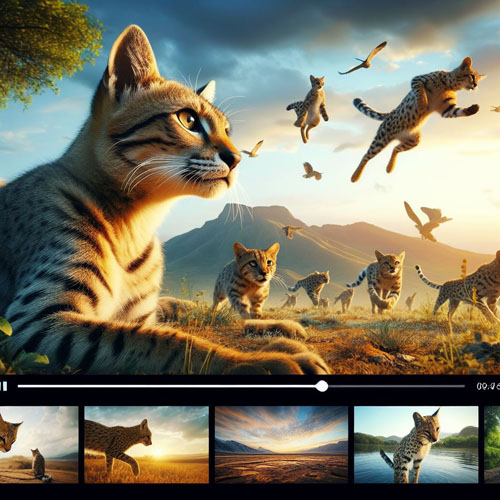The Unique Requirements of An Elderly Savannah Cat
As human life expectancy continues to increase, so does the lifespan of our feline companions. It is evident that the aging cat population will continue to expand in the foreseeable future.
How old is my cat in human years?
- The concept of “cat years” is a way to estimate how old a cat is in human years. It has been commonly believed that one year of a cats life is the same as seven human years, but this is not entirely accurate. The age of a cat can be calculated more accurately by taking into account factors such as breed and overall health. Generally, cats age more rapidly in their first two years of life, reaching the equivalent of about 24 human years by the age of two. After that, their aging process slows down, with each subsequent year being roughly equivalent to about 4 human years. However, it is important to remember that this is just an estimate and individual cats may age at different rates.
A Savannah Cats age is not a disease
- Aging is an inherent phenomenon. Despite the numerous intricate physical transformations that occur with the passage of time, aging itself should not be considered a malady. Although certain ailments that impact older felines may be irreversible, they can frequently be managed. Ensuring that your senior cat enjoys optimal health and a superior quality of life necessitates identifying and minimizing potential health hazards, promptly identifying diseases, mitigating or postponing their advancement, and enhancing or preserving the functionality of the body’s systems.
What happens as my cat ages?
Aging is a process that is accompanied by many physical and behavioral life changes:
- Older cats have a weakened immune system compared to younger cats, making them less capable of defending against foreign invaders. This is further exacerbated by chronic diseases often associated with aging, which may impair immune function even more.
- Dehydration has been an fallout of many diseases in older cats, and it can further reduce their immunity and slow blood circulation
- Sometimes the skin of older cats becomes thinner and less elastic, just like it does in elderly humans, with reduced blood circulation, making it more susceptible to infections.
- Older cats tend to groom themselves less effectively than younger cats, which can result in hair matting, skin odor, and inflammation.
- Aging felines often have overgrown, thick, and brittle claws.
- Similar to humans, aging changes in the brain of elderly cats can lead to memory loss and alterations in personality, commonly known as senility. This may manifest as wandering, excessive meowing, apparent disorientation, and avoidance of social interaction.
- Hearing loss is a common occurrence in cats of advanced age, for various reasons.
- Age-related changes in the eyes include a slight haziness of the lens and a lacy appearance to the iris. While these changes do not significantly affect a cat’s vision, certain diseases, particularly those associated with high blood pressure, can severely impair their ability to see.
- Dental disease is highly prevalent in older cats and can hinder their eating abilities and cause significant pain.
- In healthy senior cats, a decreased sense of smell may contribute to a loss of appetite. However, discomfort from dental disease is a more likely cause for their reluctance to eat.
- Feline kidneys undergo age-related changes that can ultimately lead to impaired function. Kidney failure is a common disease in older cats, and its symptoms can vary greatly.
- Degenerative joint disease is another common issue in aging cats.
Keeping my cat healthy as they age
- To help keep your senior cat healthy, you can focus on providing a balanced diet tailored to their age and specific health needs. Regular veterinary check-ups are important to catch any potential health issues early. Maintaining a clean and comfortable living environment, providing mental stimulation, and ensuring they have plenty of fresh water are also key. Additionally, regular exercise and monitoring their weight can help prevent obesity and associated health problems.
Proper nutrition and reduced stress will help maintain a healthy feline
- Proper nutrition and reduced stress are key to keeping senior cats healthy. Feeding them a balanced and age-appropriate diet is important, as their nutritional needs change as they age. Reducing stress can be done by providing a calm and comfortable environment, ensuring they have their own space, and using pheromone products to promote relaxation. Regular veterinary check-ups are also crucial for monitoring their health and addressing any issues that may arise.
How can my Vet help?
- In order to keep a savannah cat healthy, owners can rely on their veterinarian for assistance. Vets can provide essential care, such as vaccinations and regular check-ups, to ensure the cat is in good health. They can also offer guidance on proper diet and nutrition, as well as help with any behavioral issues that may arise. Regular vet visits are crucial to monitor the cat’s overall well-being and address any potential health concerns.
